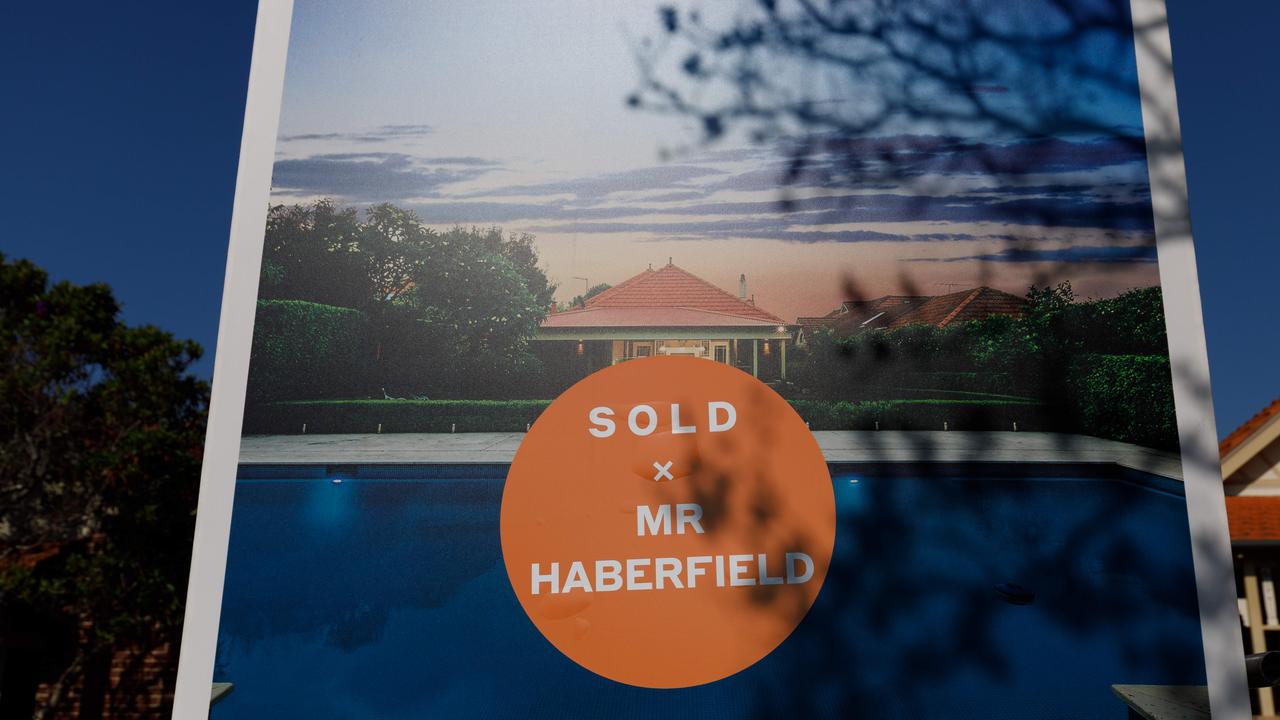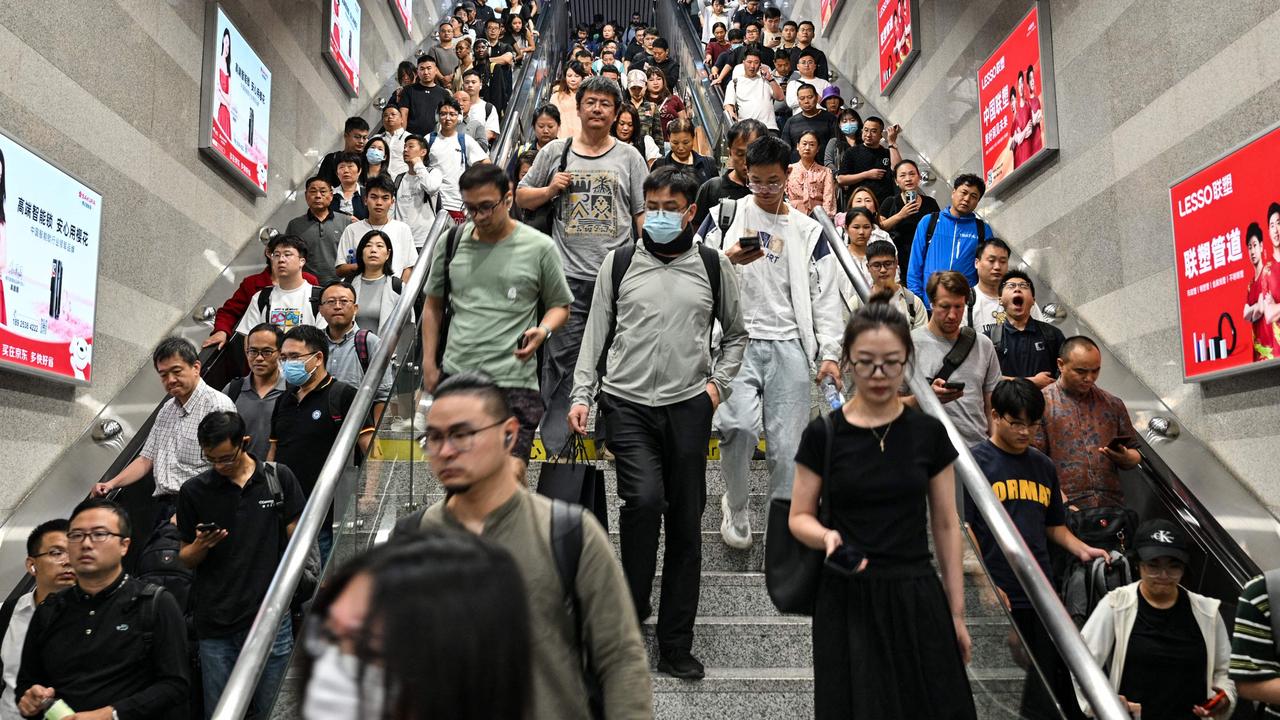Warning US could ‘disconnect’ from Australia over Belt and Road deal with China hosed down
A threat that the US may “simply disconnect” from Australia over a Belt and Road deal with China has been quickly walked back.

Companies
Don't miss out on the headlines from Companies. Followed categories will be added to My News.
The US ambassador to Australia has hosed down a warning from Secretary of State Mike Pompeo that Victoria’s Belt and Road agreement with China could see the US “simply disconnect” from Australia if it impacts telecommunications.
Following Pompeo’s comments the US Ambassador, Arthur Culvahouse, stressed his nation is confident its ally down under will protect the security of its telecommunications networks or those of its intelligence partners.
“We have made no secret of our concerns about 5G, and we commend Australia for its leadership on the issue,” Mr Culvahouse said.
“We are not aware that Victoria has engaged in any concrete projects under BRI, let alone projects impinging on telecommunications networks, which we understand are a federal matter.
“If there were telecommunications initiatives that we thought put the integrity of our networks at risk, of course, we would have to take a close look at that, as the secretary suggested.
“We have every confidence that Australia, as a close ally and Five Eyes partner, would take every measure necessary to ensure the security of its telecommunications networks, as it has repeatedly done in the past.”
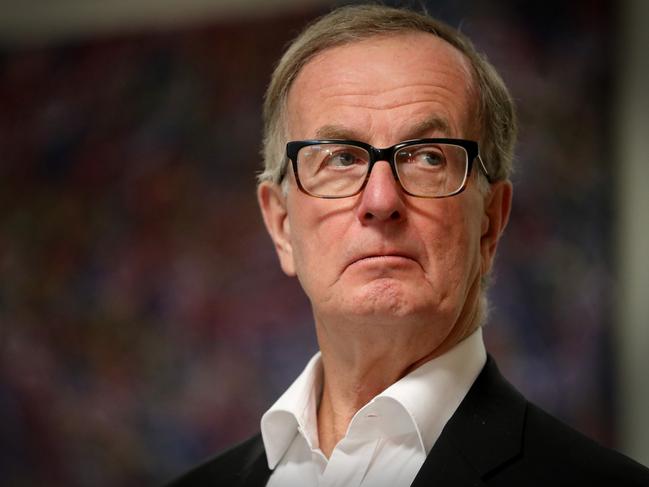
Victoria is in the final stages of finalising the controversial agreement with China, despite the Federal Government saying it is not in Australia’s best interests.
Home Affairs Minister Peter Dutton on Thursday described China’s initiative as a “propaganda exercise”.
“Victoria needs to explain why it is really the only state in the country that has entered into this agreement,” Mr Dutton told 2GB.
On Sunday (AEST) Mr Pompeo warned the agreement increased the Chinese communist regime’s ability to do “harm”.
While he said he did not know of Victoria’s agreement, he warned it could impact the US’s Five Eyes partnership with Australia.
“We will not take any risks to our telecommunications infrastructure, any risk to the national security elements of what we need to do with our Five Eyes partners,” he said.
“I don’t know the nature of those projects precisely. To the extent they have an adverse impact on our ability to protect telecommunications from our private citizens, or security networks for our defence and intelligence communities – we simply disconnect, we will simply separate.
“We are going to preserve trust in networks … we hope our friends and allies, especially our Five Eyes partners like Australia, do the same.”
The Five Eyes is an intelligence alliance between Australia, Canada, New Zealand, the United Kingdom and the United States.
The UK’s Daily Telegraph reported Saturday (local time) that Britain, who is also a member of Five Eyes, will now reduce Chinese tech giant Huawei’s involvement in its 5G network, in the wake of China’s actions around the coronavirus outbreak.
UK Prime Minister Boris Johnson gave the green light for Huawei’s participation in January, despite widespread domestic opposition and pressure, including from the United States.
Mr Johnson has now instructed officials to draft plans that would see China’s involvement in Britain’s infrastructure end by 2023, according to the report.
The US has pushed hard for countries to block Huawei from building their 5G mobile networks, claiming its equipment can be used to spy for Beijing.
Last year Australia also warned the British about its Huawei decision, citing security concerns.
Australia also blocked Huawei from rolling out the its own 5G network.
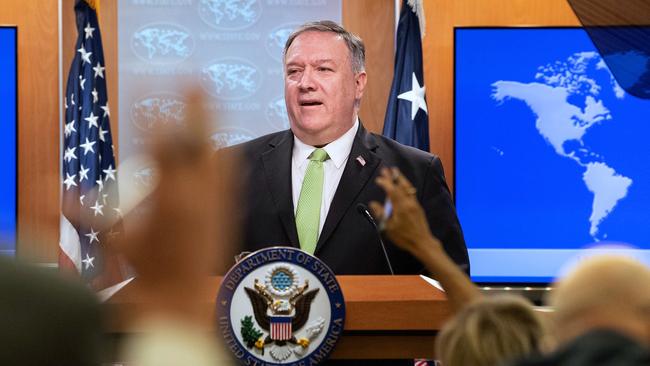
Victorian Premier Daniel Andrews was asked about Secretary Pompeo’s comments at a press conference on Sunday but said he hadn’t seen them.
“I would want to see Secretary Pompeo’s comments out of respect for him and his office, before I made comment on that,” Mr Andrews said.
“On the broader issue, my position on these matters is very well known, very well understood. It’s all about Victorian jobs, and we’ll continue to work in a strong partnership.
“It doesn’t mean we agree on everything. There are many things we don’t agree on. But what I think all of us here, and indeed, both parts of our partnership, both Victoria, Australia and China, surely we all have to concede, we all have to recognise, that a good strong partnership is in everybody’s interests.”
SECRECY AROUND AGREEMENT
Victoria’s agreement will fast-track China’s involvement in infrastructure projects in the state.
But some are fearful it will also lead to political interference in Australia, as China flexes its muscles as a rising power in the world.
Australia, along with many other countries around the world, has felt heat from China in recent weeks after calling for an independent inquiry into the origins of the coronavirus.
Since then China has slapped a 40 per cent tariff on Australia’s barley exports, blocked beef imports from four abattoirs, imposed new customs requirements on Australia’s iron ore and also told Chinese power stations to turn their backs on Australian coal.
On Wednesday, the news agency Bloomberg reported that China had prepared a further ‘hit list’ of Australian products.
According to The Age, Victoria’s primary producers have so far escaped China’s trade bans and tariffs relatively unscathed.
The state’s two-way merchandise trade with China rose to $30.7 billion last year, an increase of more than 60 per cent since 2014.
Australia’s push for the coronavirus inquiry has also been criticised by Victoria’s Treasurer Tim Pallas, who said it “vilified” Beijing.
Meanwhile, Victoria’s Department of Premier and Cabinet has refused to access to details of national security advice it received before signing up to the initiative with China, The Australian has reported.
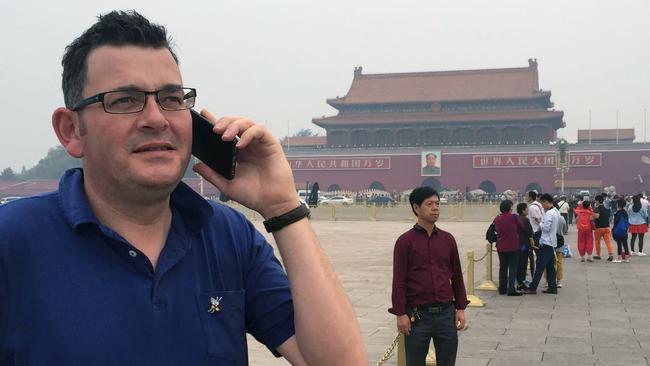
Emails exchanged between the Andrews government and Australia’s Department of Foreign Affairs and Trade months before the deal was signed in October 2018, were obtained by the Victorian opposition under the Freedom of Information laws, but much of the content has been blacked out.
Mr Andrews’s department has said publication of the contents would “prejudice relations between Victoria and the commonwealth”.
The Victorian Government has also been avoiding questions about whether any of its $24 billion coronavirus rescue package would be funded by a loan from China.
Federal Deputy Labor leader Richard Marles told Sky News the Andrews Government should be transparent about where it is borrowing its money from.
‘IT’S A DEBT-TRAP’
China has faced accusations that its Belt and Road initiative is a “debt-trap” strategy that leaves poorer countries with loans they can’t pay.
While the agreements have facilitated cheap infrastructure loans from China, when poorer economies default, China has made land grabs in places like Tajikistan and Sri Lanka.
Australia has expressed concerns about the initiative, along with Japan, India, the US and countries in Western Europe.
China expert Tom Miller told the BBC parts of the initiative could be described as a “giant bribe” in which China promises investment in exchange for political concessions.
He also raised the prospect of poor countries like Laos being stripped of their natural resources in exchange for $7 billion in railway investment, for example.
SOAS China Institute expert Dr Yuka Kobayashi told news.com.au in 2017 that the initiative was “part and parcel” of China trying to assert itself as a rising power.
She said the focus on economics was also part of China “trying to present itself in a palatable way” to others.
“It’s presented as a win-win initiative, with fuzzy Confucian ideals so that is not perceived as threatening for these border regions.”
China has touted the project as a way of connecting and developing some of the most diverse countries in the world, providing economic opportunities to left-behind regions.
However, Dr Kobayashi said the response from countries has been “mixed” depending on how much they need the investment.
“Not being perceived as a ‘threat’ is something that the Chinese are very conscious about so they’re really trying to package it that way, saying ‘we’re investing in infrastructure’ giving you the financing and helping with construction. It’s hard to say ‘no’ to that,” she said.
— With AFP
Originally published as Warning US could ‘disconnect’ from Australia over Belt and Road deal with China hosed down

